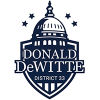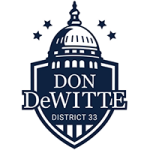
 Where did this rule come from?
Where did this rule come from?
The CRTL standards came from an internal-Illinois State Board of Education taskforce and were approved by ISBE in December 2020. Under the Illinois School Code, 105 ILCS 5 gives ISBE broad powers to administer standards for teacher preparation and licensure. Exercising that authority, ISBE has promulgated these new rules geared towards teacher preparation standards.
Unlike traditional legislation, what’s being discussed here is an administrative rule created by an agency under the control of the Governor. In order for the rule to become effective, it has to be published and put before the public for comment where changes can be made. Then, it must go to the Joint Commission on Administrative Rules (JCAR) for final approval.
What is JCAR?
The Joint Commission on Administrative Rules is a committee made up of 12 members of the Illinois General Assembly, 6 Democrats and 6 Republicans. Only the members of JCAR vote on the rule, not the entire General Assembly. If JCAR does not approve the rule, the rule cannot be enforced. It takes 8 votes for a rule not to be approved by JCAR.
What does this new rule do?
This new rule purports to adopt inclusive learning standards for teachers to be guided by “culturally responsive” concepts and ideas while teaching. Sounds great, right? But in reality, what this rule does is create a burdensome, confusing, and indecipherable set of progressive ideas and buzzwords for educators in Illinois.
Why should you be concerned?
Allowing and understanding all viewpoints in the classroom, whether it be progressive ideas or others, should be respected by educators, no doubt. However, this rule uses language that questions the real intent behind it.
The main concerns are as follows:
- The standards throughout the rule are extremely vague. Instead of focusing on knowledge and performance indicators (which were developed to ensure competency in content areas), they’re replaced with broad statements like “the culturally responsive teacher […] create[s] a risk-taking space that promotes student activism and advocacy.” What exactly does that mean?
- In the past, “inclusive” standards like these have been sold as fostering a more open learning environment, when, in reality, they’re often used to do just the opposite. With phrases like “teacher and students co-create content to include a counter narrative to dominant culture” and “is aware of the effects of power and privilege and the need for social advocacy and social action to better empower diverse students and communities,” it’s worth wondering whether those viewpoints that are considered “the dominant culture” could be silenced, marginalized, or considered offensive.
- This new rule requires teachers to take on a new role: activist nurturer. Under this new role, teachers throughout Illinois will now be required to nourish, foster, and encourage student activism both inside and outside the classroom. What this means, nobody’s really sure. Are teachers going to bring classrooms to various protests/rallies throughout their community? What kind of “activism” will be encouraged, activism that supports the progressive ideas/goals/agendas? Is this a role we really want teachers in when they already have too much to do already?
- These new standards appear to foster a learning environment where “2+2” no longer equals 4 (ie. “know and understand how a system of inequity reinforces certain truths as the norm.” This does a disservice to our students because our educational institutions have to have an objective way to evaluate our student’s performance. Creating a “there’s no right answer” situation for every scenario in our educational institutions will simply result in a lot of disappointed students when they eventually grow up and have to face reality.
- Possibly what’s most concerning about this rule is that the standards that are being repealed and replaced appear to already do most (if not all) of what ISBE wants with this rule but in different, less “progressive” terms. For example, one of the standards being repealed requires teachers to “facilitate a learning community in which individual differences are respected” and to “use information about students’ families, cultures, and communities as a basis for connecting instruction to students’ experiences.” What’s the point in changing the already existing rules, unless the real intent is to require educators to think a certain way and conform to a certain ideology?
How you can get involved
- Become Informed! Read the full rules here.
- Sign the Petition. Let members of JCAR know that you oppose this rule. Sign the petition here.
- Contact Members of JCAR. Urge members to oppose this rule. Find their contact information here.
- Comment Directly to ISBE. Submit comment to ISBE here. Or, you can also call ISBE in Chicago at (312) 814-2220 or in Springfield at (217) 782-4321.

